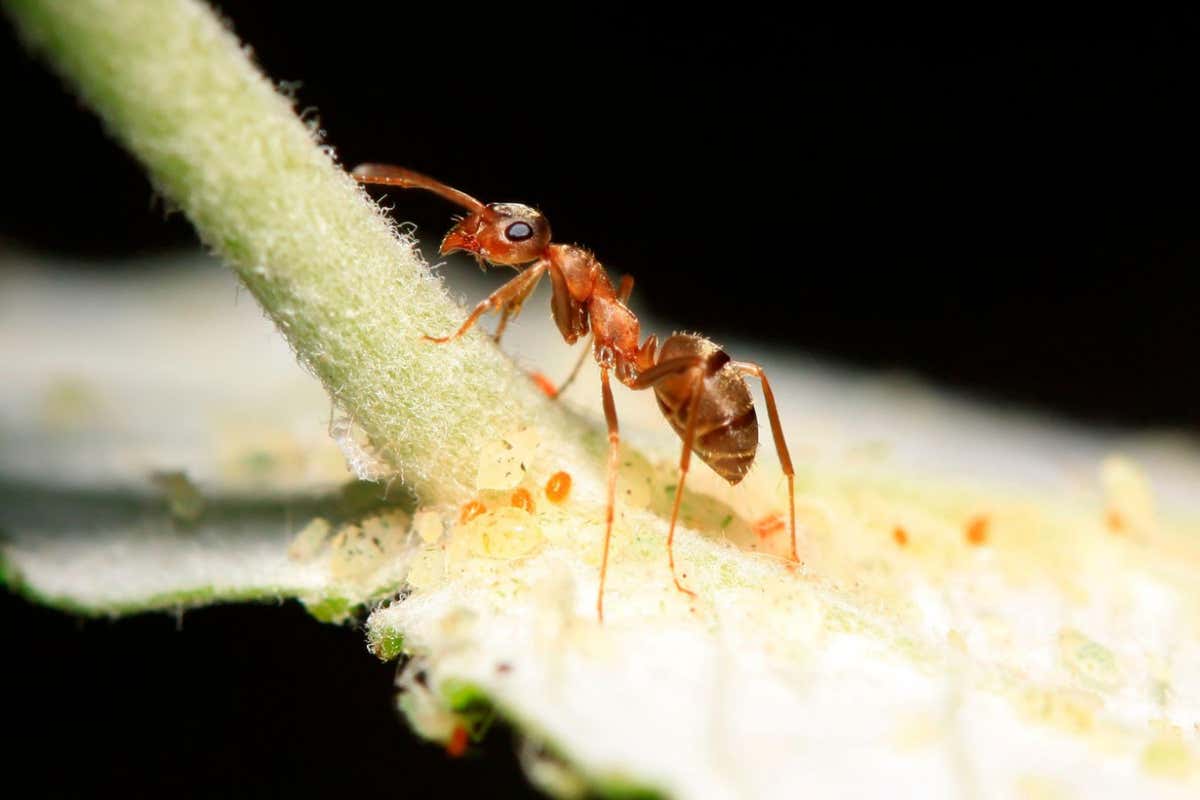Infection
Ants treat their own fungal infections by eating aphids
Silky ants seem to seek out nutritional remedies when they are ill
YongXin Zhang / Alamy
Some ants treat their own infections by eating aphids containing an antiseptic ingredient.
In previous laboratory experiments, silky ants (Formica fusca) with fungal infections chose to eat food laced with hydrogen peroxide instead of their usual meals. Hydrogen peroxide is harmful to the ants, but can help them defend against pathogens.
“Some aphids also contain hydrogen peroxide,” says Jason Rissanen at the University of Graz in Austria. “So that led us to look into whether aphids could be a possible source of medication for ants too.”
Advertisement
Rissanen and his colleagues collected 30 wild silky ant nests in Finland and infected half of the ants with a harmful fungus. They then presented both groups with a standard food mix of agar and honey, as well as two mixes supplemented with either a small or large quantity of crushed aphids.
The uninfected ants preferred the standard mix, but the infected ants got up to 50 per cent of their food from the high-aphid mix. After fighting off the fungal infection, the ants would switch back to the standard food.
“We know that ants are really sensitive in detecting compounds and their concentrations in foods,” says Rissanen, who says that the ants seem to know how much hydrogen peroxide to eat to kill the fungus without overdosing.
Eating from a variety of sources, including a large amount of the aphid-supplemented food, was found to increase the sick ants’ chances of surviving the infection. “In humans, it’s not enough to just eat medicine. We need a healthy overall diet to be cured from disease,” says Rissanen. “Aphids also have all sorts of lipids, proteins and amino acids that could also be part of the health benefit.”
Many other animals are known to self-medicate. Some chimpanzees, for example, put insects onto open wounds, while fruit fly larvae consume alcohol to kill parasitic wasp eggs.
The team’s next step is to look at how ants may use aphids as medication in a more natural set-up, says Rissanen.
Topics:
- animals/
- insects

